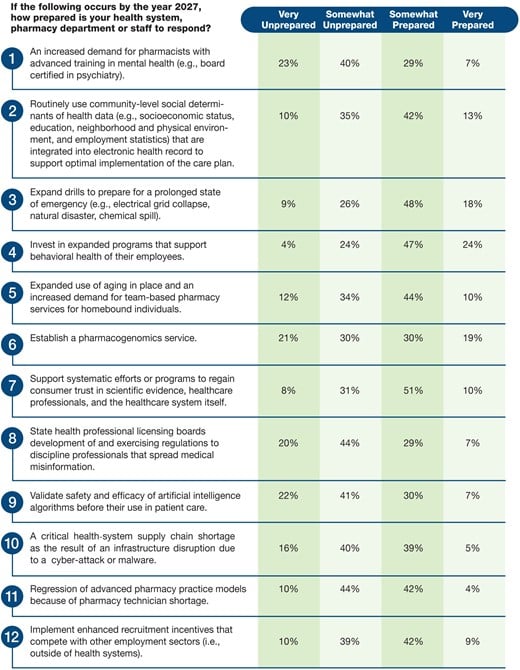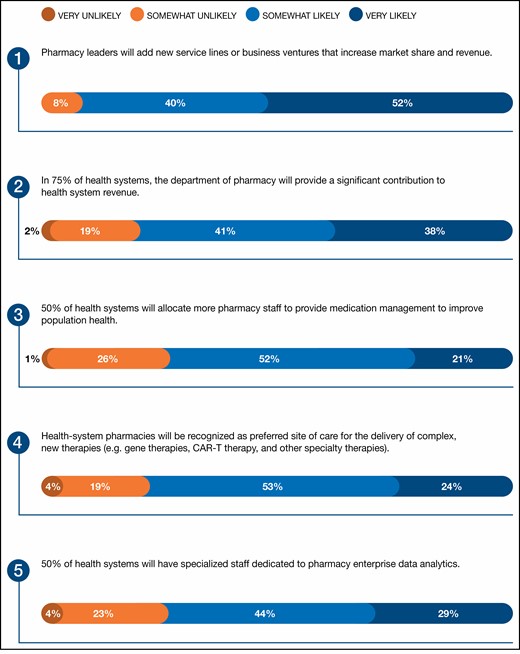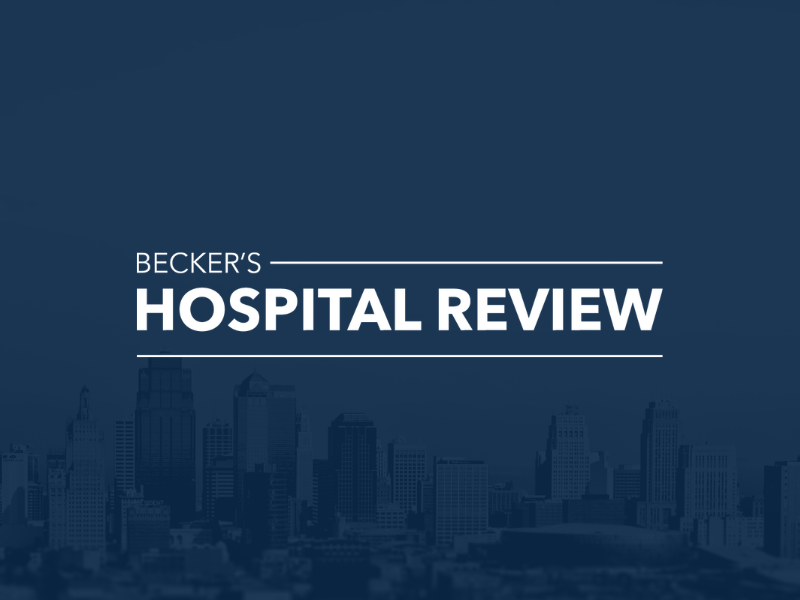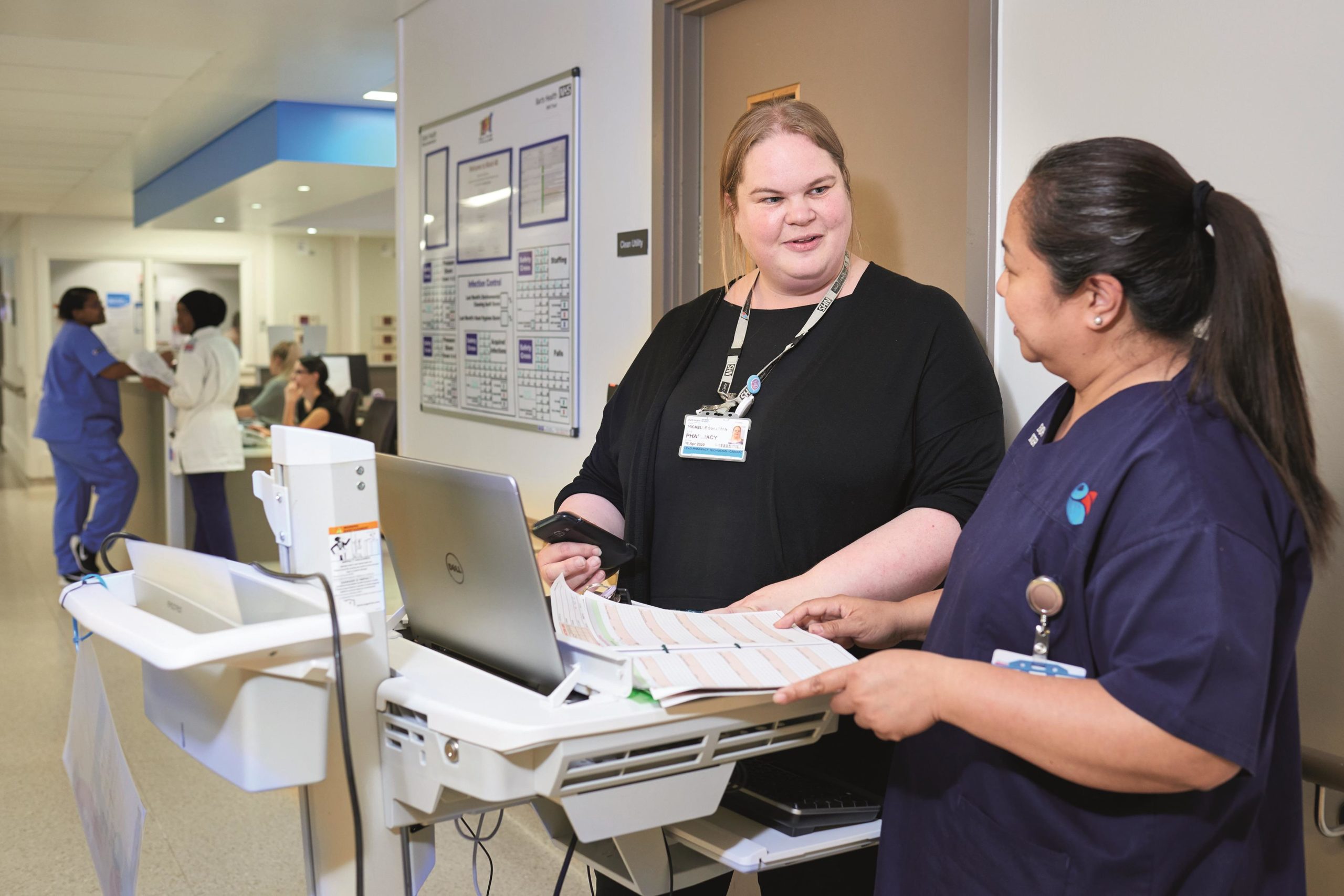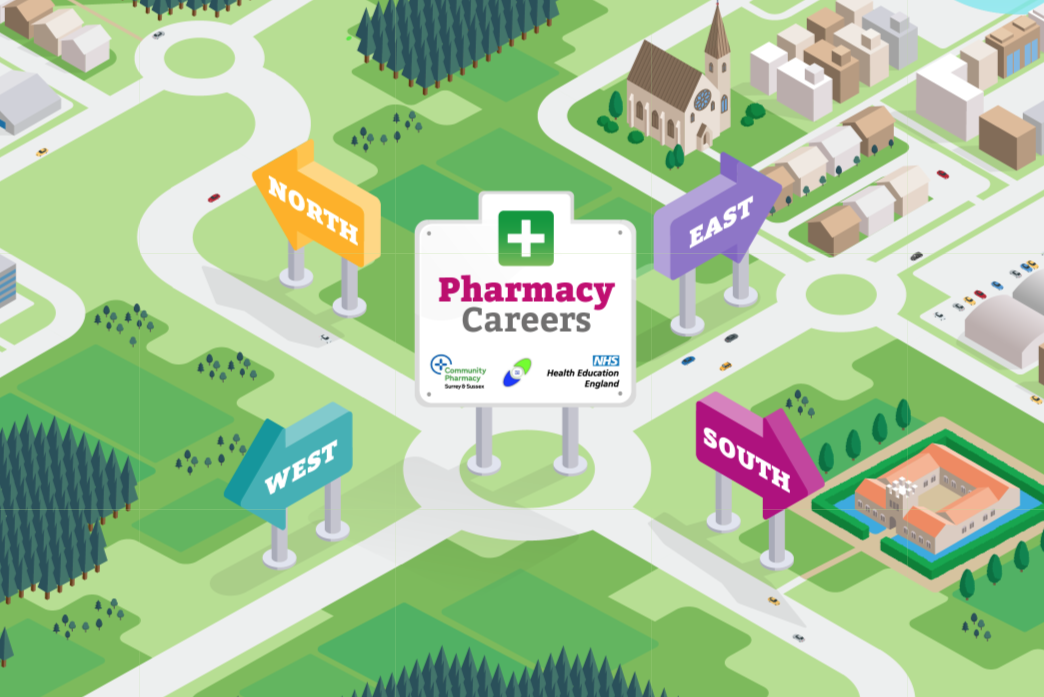This is for OP. I am showing my references for my information. Please do the research yourself and review. There will be new jobs but not traditional pharmacist jobs. It may or may not be right for you but it may not be what you are expecting pharmacy to be. Only you can decide.
Since pharmacy is being highly automated and they want to dramatically increase the role of the pharmacy technician they had to come up with new jobs for pharmacist and create opportunities for generating revenue. Pharmacist have always been paid for dispensing but no longer under value based care models. You get paid for value and not volume of prescriptions filled. This means getting paid for outcomes and patient satisfaction. No outcome= no income. They looked at the patient centered medical home model and tried to figure out how to fit the pharmacist in. Well it is the same roles that a registered nurse or clinical nurse specialist is doing in the PCMH. The board certifications are for most of the same populations for CNS and CPS if you look at them (ER, pediatric, ICU, geriatrics, cardiac, others). If you look at the internet you will see all these clinical nurse specialist job posting all over (they have independent practice and prescribing in some state). Guess what it is the same as the pharmacist job! If you choose to go this route you can likely get grants for the same job as a nurse since many are leaving the profession but I do not see pharmacists grants for the same jobs.
This unmanned robotic pharmacy from Estonia could revolutionise out-of-hours healthcare and medicine across Europe.

www.euronews.com
The fully autonomous, robot pharmacy coming to a town near you
from article: "We do not have sufficient numbers of pharmacists. As our solution is fully autonomous, you can have one traditional pharmacy staff taking care of six to eight pharmacies if you divide them between the autonomous ones," he said.
Article from drug topics= it reads that a nurse can do the same job for 70% of the cost:
As a pharmacist, embedding yourself in a primary care practice can have positive outcomes for both patients and your business.

www.drugtopics.com
Not sure on pharmacist independent practice and prescribing but here is the CNS.
The National Council of State Boards of Nursing (NCSBN) is a not-for-profit organization whose purpose is to provide an organization through which boards of nursing act and counsel together on matters of common interest and concern affecting the public health, safety and welfare, including the...

ncsbn.org
The National Council of State Boards of Nursing (NCSBN) is a not-for-profit organization whose purpose is to provide an organization through which boards of nursing act and counsel together on matters of common interest and concern affecting the public health, safety and welfare, including the...

ncsbn.org
Here are articles from pharmacy times: does not sound great to me says profession may not exist in 30 years:
Without intervention, this may be the tipping point that causes mass closures of pharmacies.

www.pharmacytimes.com
Never have there been so many opportunities for non–dispensing pharmacist roles. At the same time, there has never been such a need to save the dispensing environment.

www.pharmacytimes.com
read the ashp pharmacy forecast past couple years:
ASHP and the ASHP Foundation (“the Foundation”) present this 11th edition of the annual Pharmacy Forecast and are pleased to disseminate it through AJHP, p

academic.oup.com
ASHP Foundation Pharmacy Forecast 2023: Strategic Planning Guidance for Pharmacy Departments in Hospitals and Health Systems
ASHP and the ASHP Foundation (“the Foundation”) present this 10th edition of the annual Pharmacy Forecast and are pleased to disseminate it through AJHP, p

academic.oup.com
from above article: The stressors on pharmacy practice models in the next few years could be compounded by projected shortages of nurses, physicians, and hospital staff across the healthcare continuum, which could require pharmacy personnel to perform cross-functional duties traditionally managed by other departments.
1 FPs overwhelming agreed (89%) that pharmacy departments will likely be required to perform cross-functional duties (such as patient medication education, care coordination, and diabetes education), further stretching pharmacy departments to do more with less
ASHP Foundation Pharmacy Forecast 2022: Strategic Planning Guidance for Pharmacy Departments in Hospitals and Health Systems
Pharmacist calling Dave Ramsey show about student loans:
$300,000 In Student Loans and Nervous About the Future!
Training both pharmacy and nursing students to do the same jobs:
Expanding the primary care patient-centered medical home through new roles for registered nurses
Dianne Conrad, DNP, RN, FNP-BC, FNAP a, b, *, Katie Alfredson, DNP, RN, AGNP-C
Process: expanding roles of nurses within the interdisciplinary PCMH model
In order to achieve improved patient outcomes, processes of care delivery in the Interdisciplinary PCMH Model have been
modified to utilize nursing and clinical personnel to the full extent of their education and training (see Fig. 3). Innovative nursing roles and ,processes in the primary care setting include:
Quality team e this team is led by a registered nurse (RN) along with medical assistants, who extract population data monthly
from the electronic health record reporting system on patients who are not meeting quality measures. These patients are actively engaged to make appointments to address the plan of care with their providers. Documented quality outcomes in the electronic medical record are then transmitted to payers through a registry.
Phone nurses e this team of nurses triage patient calls, report results, and provide patient education for phone inquiries from
patients. Chronic care medication refills are performed according to physician-determined protocols by registered nurses. The
phone nurses also perform transition of care calls soon after hospital, emergency department admissions or other care
transfers that include medication reconciliation and coordination of community services to decrease hospital readmissions.
These transitions of care calls are now tied to reimbursement if the patient is seen by the provider in a determined time frame.
Medicare wellness nurse e the Medicare Wellness nurse is part of the team with providers to administer cognitive, depression
and fall risk screening, update immunizations and other provisions of the Medicare Wellness visit for Medicare
Beneficiaries.
Project management (IT) nurse e this nurse has specialized information technology knowledge to modify EHR templates,
create population reports and special project management duties such as creating processes to meet Meaningful Use measures.
This nurse, with advanced EHR training, also provides daily information technology consulting regarding EHR functionality.
Point of care nurses working with providers e a team composed of an RN and medical assistants work with providers to maximize daily workflow, assess needed quality measures to be ordered/performed on patients seeing the provider in the office enhance patient access to care with prior authorization calls to payers, perform patient education and assist in goal setting and care planning for health promotion.
Care coordinators e as part of a national demonstration project, these RN care coordinators who are employed by the local
physician-hospital organization, work closely with patients with complex medical problems to improve care delivery, address the social determinants of health and reduce costly care including emergency department visits and hospitalizations.15
Specialty services nurses e nurses with specialized training, utilizing evidence-based protocols, provide services in the
ambulatory care setting such as allergy desensitization injection clinics, flu vaccination clinics, travel immunization and anti-
coagulation clinics. These services require a physician available on campus, but are managed by nursing staff.
To date, medication therapy management and annual wellness visits are the primary services that have demonstrated benefits regarding improvements in health outcomes and cost savings when pharmacists are integrated specifically within an ACO.

www.pharmacytimes.com
Pharmacists in ACOs, Part 2: Medication Therapy Management and Annual Wellness Visits
After discussing the Basics of Accountable Care Organizations and Medication Therapy Management and Annual Wellness Visit services, the third and last section of the Pharmacists in ACOs series will focus on 3 more integration strategies for pharmacists within the ACO setting, including chronic...

www.pharmacytimes.com
Pharmacists in ACOs Part 3: Chronic Care Management, Chronic Disease State Management, and Transition of Care
While trying to explain his work on quantum mechanics, physicist Richard Feynman famously quipped, If anybody says they understand it, they don't understand it." The same could be said about the speed-of-light changes occurring within our nation's health care system.

www.pharmacytimes.com
Pharmacists in ACOs, Part 1: Accountable Care Basics Every Pharmacist Should Know
Dispensing is dying by 2030 pharmacist will be paid based on outcomes
By the year 2030, pharmacists' jobs will likely have little to do with dispensing drugs and much more to do with clinical outcomes, pharmacy leaders told Drug Topics.

www.beckershospitalreview.com
Choosing Evolution over Extinction: Integrating Direct Patient Care Services and Value-Based Payment Models into the Community-Based Pharmacy Setting
Amanda R. Mercadante,
Mai Yokota,
Angela Hwang,
Micah Hata, and
Anandi V. Law*
The American healthcare payment model introduced Pharmacy Benefit Managers (PBMs) into a position of power that currently puts into question the state of the pharmacy profession, especially in the community field. Reimbursement plans had been designed ...

www.ncbi.nlm.nih.gov
Pharmacy technicians are taking on more responsibilities to free pharmacists to carry out clinical services, but the role is being interpreted differently across pharmacy settings and there is no clear definition of what the role should entail.

pharmaceutical-journal.com
Webinar Series: Implementing Nurse-Run Hypertension Care
Apr 11, 2018 • Focus Area:
Population Health • Program:
Preventing Heart Attacks and Strokes Everyday (PHASE)
Looking to "share the care" within their care team—especially with nursing team members—but aren't sure how?

www.careinnovations.org
Registered Nurses: Partners in Transforming Primary Care
from article:
Registered nurses, the largest health profession in the nation with over 3.5 million members, are ideally suited to provide the bulk of care for people with chronic illnesses. In primary care, RNs may assume at least four responsibilities: 1) Engaging patients with chronic conditions in behavior change and adjusting medications according to practitioner-written protocols; 2) Leading teams to improve the care and reduce the costs of high-need, high-cost patients; 3) Coordinating the care of chronically ill patients between the primary care home and the surrounding
healthcare neighborhood; and 4) Promoting population health, including working with communities to create healthier spaces for people to live, work, learn, and play.
This is pharmacy in the NHS doing population heath: Review this and see if it interests you. This is where we are heading in pharmacy.
As a Clinical pharmacist in hospital, you are part of a large multidisciplinary team managing the use of medicines in ...

careersinpharmacy.uk
Community pharmacy professionals work in the heart of cities, towns and villages, in independent and multi-branch settings. Within this sector ...

careersinpharmacy.uk
Pharmacy professionals in primary care work in local communities supporting GPs, nurses, community pharmacists and other healthcare professionals. As a ...

careersinpharmacy.uk

careersinpharmacy.uk
In a phone Q&A, Nash, the founding dean of the Jefferson College of Population Health and the co-host of the 19th annual Population Health Colloquium, muses on precision medicine, social determinants of health and the future of pop health.
medcitynews.com





